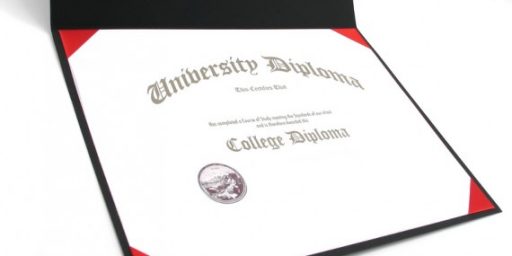Education and Cross-Pollenization
Craig Henry writes on the benefits of education as a means of bridging cultures and gaining understanding:
Since World War II, the US military has used its schools to strengthen our alliances and to integrate allies into our military structure. Students from allied countries can be found at all levels– from the service academies to the war colleges. Similarly, each branch opens the doors of its war college to members of the other branches.
The benefits are obvious. It is much easier to cooperate with Peru on counter-insurgency if the Peruvian generals have been exposed to American doctrine and methods. The cooperation can be even more effective if some of the officers know each other from their time in the classrooms at Leavenworth or Newport.
In many cases, study at the American military schools helps foreign officers in their quest for promotion. Over the long-term this strengthens the ties with allied forces: the top ranks of their services are populated with graduates of our schools.
You see the same dynamic at work in the history of the FBI. After Hoover established the FBI Academy at Quantico, he admitted students from local police departments. Local cops were exposed to modern methods of law enforcement, training, and investigation. Most of them left with a positive image of the FBI and were more willing to cooperate with the Bureau if that became necessary.
He argues at length that private business should do something similar.




